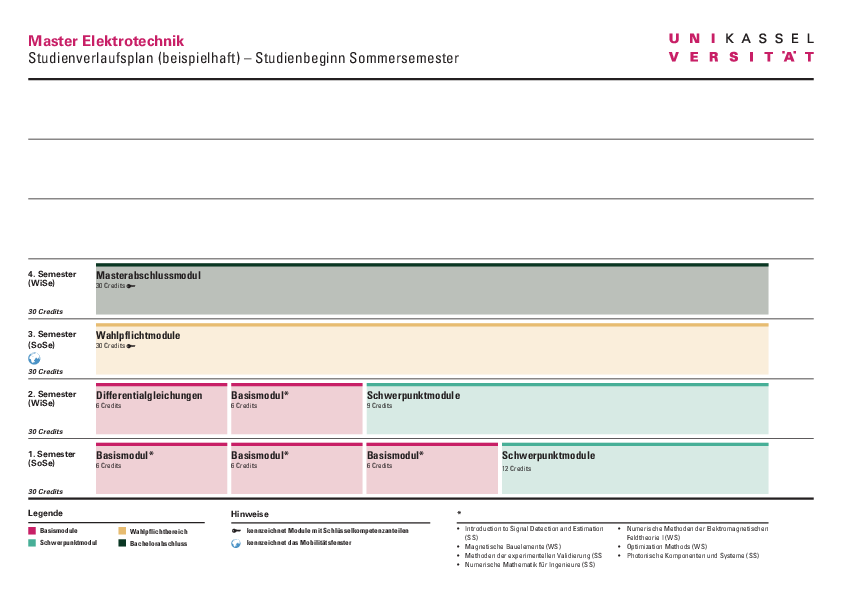Study structure
The content on this page was translated automatically.
The Electrical Engineering Master of Science (M. Sc.) program has a standard duration of four semesters and is made up of individual modules, which are defined in the examination regulations and described in more detail in the module handbook. It is possible to start the course in both the winter and summer semesters.
In the Master's degree course, the proportion of flexible study components is 70 percent, thus emphasizing the students' own choice and specialization options according to their areas of interest. This applies in particular to the Master's thesis. But there is also time for a stay abroad - preferably in the third semester.
In the Master's in Electrical Engineering, students can choose one of six specializations (with 30 CP) in combination with 30 CP compulsory elective modules for specialization:
- Automated Systems
- E-Mobility
- Electrical Energy Systems
- Electronics and Photonics
- Information Technology
- Smart Sensor Systems
Sample study plan summer semester
Download
Sample study plan winter semester

